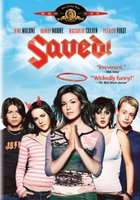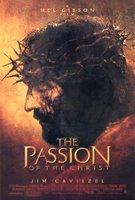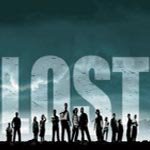

Hollywood-induced Christian schizophrenia seems widespread. How else to explain that Christians consistently complain about the amount of violence coming out of Hollywood and yet, as a recent study indicated, Christians tend to go see violent movies in the theater more often than do non-Christians. Of course, the inconsistency works both ways. Has anyone noticed the irony in the fact that so many Hollywood artists and producers who regularly flood the market with violent content were some of the most outspoken critics of
The Passion of the Christ due to its violent content?
One week ago
USA Today (America's newspaper of choice) published an article on the front page titled "Hollywood Turns to Divine Inspiration." The point of the article is that religiously-themed movies are flooding the market this year and thus, to some extent, re-shaping the Hollywood landscape. Given Hollywood's long-standing aversion to movies with substantive Christian content, this may come close to qualifying as one of the signs of the apocalypse. For many Christians, though, this represents an answer to prayer.
But when dealing with Hollywood, I think these same Christians are learning to be careful of what they pray for. Because when you play in Hollywood's sandbox, they may help you build a castle, but then they will just knock it down. These believers applaud when
The Lion, the Witch, and the Wardrobe hits a theater near them, but then weep and wail when it is shortly followed by
The Davinci Code.
We've seen this before. A few years ago, church members were doing somersaults of joy when
The Passion of the Christ hit the screen. Just a few short months later, though, another Christian-themed movie came out called
Saved! The producers of this film thought that their movie would benefit from
The Passion feeding-frenzy because it proved that Christians wanted to see movies with Christian content. Boy, were they wrong.
Saved! was savagely attacked by many Christian reviewers and denounced by churches. What the producers of
Saved! failed to realize was that Christians do not want Christian-themed movies; what they want are movies that present a pristine, idealistic, uncomplicated and unrealistic vision of Christianity.
The problem with
Saved! was that it did not do this. (A little disclaimer: I have not seen
Saved! and so what I say is based only on what I have read about the film).
Saved! is a satire of the Christian high school experience. As such, it pokes fun at Christianity with the intent of revealing certain truths about it -- both positive and negative. I find it interesting that the positive reviews of the film by Christians that I was able to find came from individuals who had attended a Christian high school and claimed that the film captured the essence of the experience in all its complicated reality.
I am not recommending this film, as I have not seen it, but I like the way that it exposes the difficulty that Christians are having with identifying just what our relationship with Hollywood should be. As I see it, two different camps have been staked out on this issue, both of which are represented by quotes in the
USA Today article. The first comes from a minister in Arizona who applauds the increase of faith-based films, stating, "We're looking for things that help us deliver our message." That right there is the heart of the problem. Too many Christians have abdicated their responsibility to Hollywood. It is the church's job to get its message delivered, not Hollywood's. If you hope for Hollywood to deliver your message for you, of course you are going to be upset when movies like
Saved! and
The Davinci Code come out because they are not delivering the message you want. The first step to dealing responsibly with Hollywood is to stop expecting Hollywood to do our job for us.
Only when we learn to let go of this unrealistic and misguided expectation, can we begin to recognize the real value that Hollywood's product can have for the church. We are pointed in this direction by a man who speaks as a member of the Hollywood community. J. J. Abrams, the creator of
Alias and
Lost, a show which regularly examines faith issues, states: "We're seeing more religion in mass entertainment because it has become so topical. Given all the conflict in the world based on religion, I think there's a real hunger for that kind of dialogue." He's right. There is a hunger out there for religious dialogue. The value of film and television lies not in its ability to communicate our message for us but in its insurmountable ability to create
dialogue about issues of life and faith. They do not deliver the message for us, but they can get the conversation started. And, ironically, movies like
Saved! and
The Davinci Code may do a better job of opening those avenues of dialogue than do movies that simply repeat the Sunday sermon.





